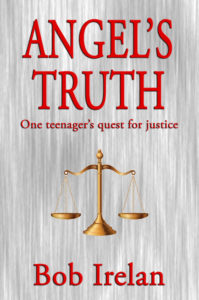


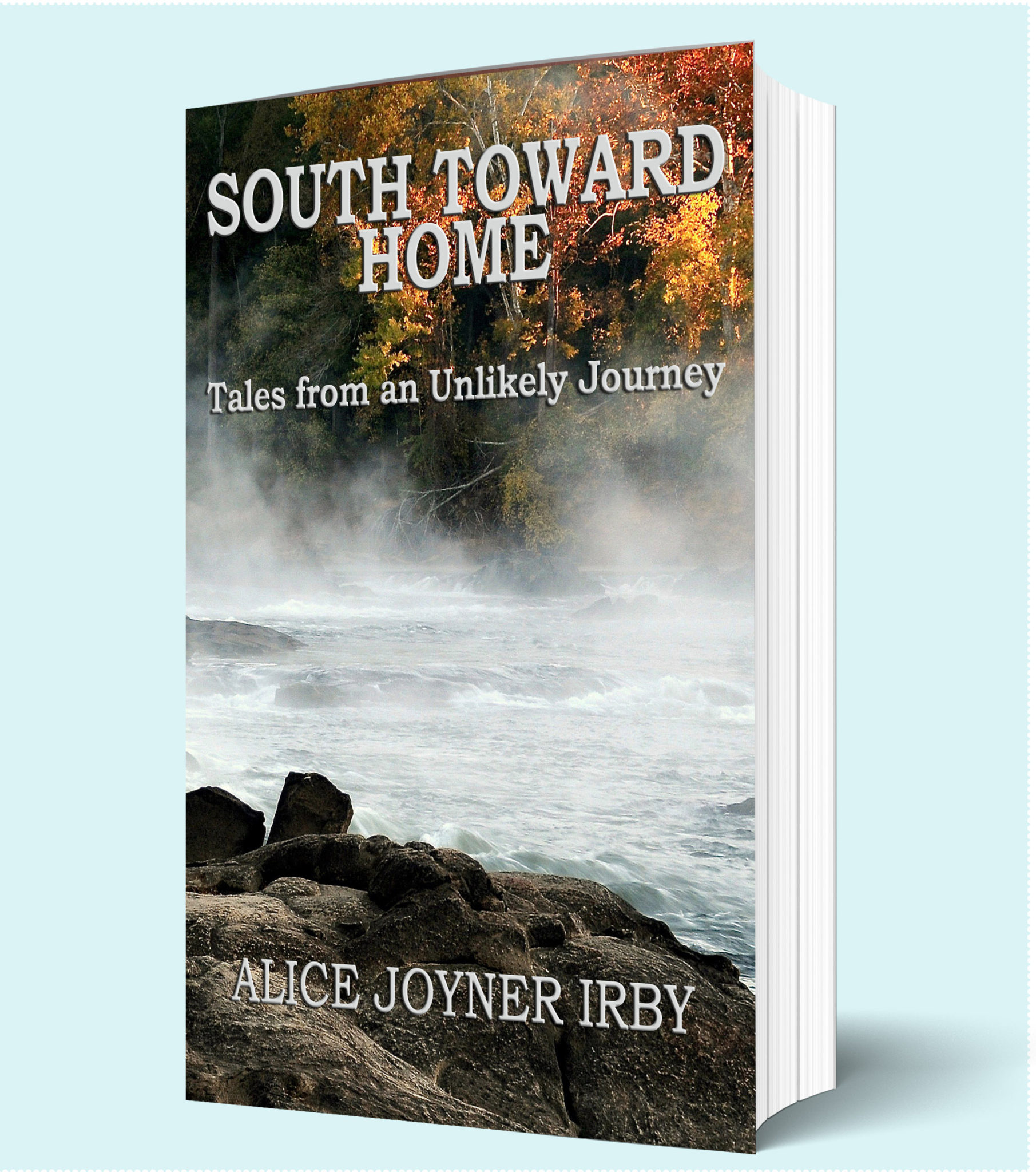
By Carolyn Harmon
charmon@rrdailyherald.com
Reprinted with permission from the Daily Herald.
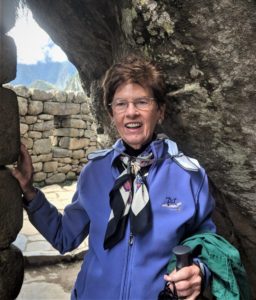
Alice Joyner Irby in The Sacred Valley, Peru 2018
Sit a spell and hear the church bells that called worshippers on Sunday morning — visit Greensboro when UNC-G was the Woman’s College — travel along on other adventures.
Alice Joyner Irby of Raleigh recently had her book published, “South Toward Home: Tales from an Unlikely Journey,” by the Outer Banks Publishing Group.
Alice was born in 1932 and lived in Weldon and after she moved away, she returned regularly until her mother died in 1991. She also visited her very good friend, the late Ruth Gregory Proctor of Halifax.
“Weldon has always been my home,” Alice said. “It is a book about my life, starting with Weldon and ending with Weldon.”
Alice grew up in Weldon, graduating from Weldon High School in 1950. She has lived through the Great Depression and the Korean War, in which her friends were drafted, she said.
“It was scary — and the polio epidemic — my brother, George Joyner, and I were quarantined for a summer, so reading about the pandemic now brings back some of those memories,” Alice said. “They didn’t know how you could get it, but they knew you could get it from other people. So we couldn’t have visitors.”
That is when she learned to play badminton. Alice’s parents were the late Margaret and William B. Joyner. William set up a badminton net during the polio quarantine.
“We couldn’t play ball, it would roll down the street,” she said. “We couldn’t go out in our yard.”
Alice’s sister is Margaret Joyner Kinker. Her brother, George, live in Morehead City and is married to a Roanoke Rapids girl, Gwen Dickens.
“We all came from Halifax County,” Alice said. “My parents were very active in the Methodist Church, and my mother’s family were some of the founders of that church in Weldon — the beautiful Gothic Weldon Methodist Church on Fifth and Washington — it is closed now.”
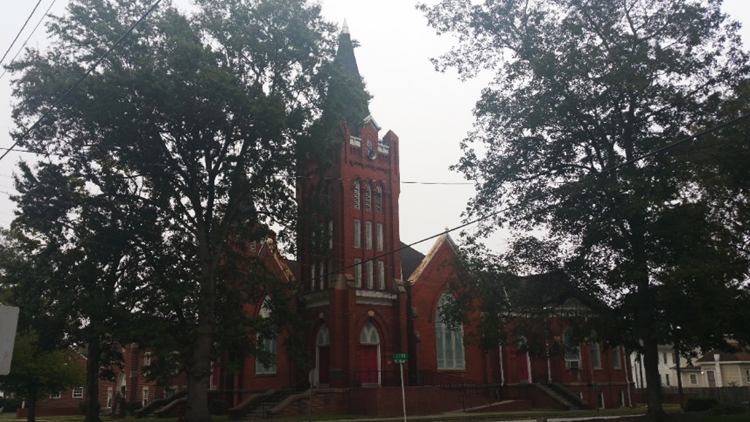
The Weldon Methodist Church, now closed
That is where Alice’s book begins — the first of 26 stories contains a picture of that church.
“The first section is about my growing up in the church, the importance of the church and the town. The second is about my brother, and our adventures — partners in crime — then I had a story about the four of us in Weldon.
“The four of us used to sing for funerals out in the country — sometimes in the family home and sometimes in a country church. They contacted the church, or they wanted some music, the four of us would pack ourselves in Ben Wyche’s car, he was always the driver and we would go sing.”
The four of them were Alice, Wyche, Blanche Selden Bullock, a classmate from Weldon High, who married Thurmond Bullock; and J.P. Ellis.
The first set of stories continues with Alice growing up, the train coming through, the second World War and what it was like living in Weldon during that time. The second set is what happened in Alice’s young adult life.
“One story has to do with how I was discriminated against trying to get on a United Airline Flight just for men in the early 1960s,” she said. “Some of the stories are about me hitting those barriers in those days. Another one has to do with my first job out of graduate school at Merrill Lynch in Greensboro, when I applied I was told, ‘You have the credentials that exceed, but we can’t hire you because you are a woman.’ The laws permitted that at the time.”
Another section is about her career while working for the Lyndon B. Johnson administration’s Job Corps, part of the war on poverty. She attended Rutgers University where she was the vice president for student services, followed by working for an educational testing service that makes the SAT and a lot of the admissions tests, she said.
In other sections, she writes about celebrities and her friends — her daughter, Andrea Irby, growing up with a horse; the time she met George W. Bush on a golf course in Pinehurst; her yard man; her sister, Margaret; two of her friends named Mary; her father; and the fortitude and courage of women in an earlier time, she said.
“I wanted to celebrate a lot of people who have been important in my life,” Alice said.
The book came out of a suggestion and encouragement of her editor in Raleigh, Linda Hobson, and a friend and fellow scribe, Ron Rhody, Alice said.
“We lived in Pinehurst — he said, ‘You really need to write your story for your family if nothing else.’ ”
An incident that happened in 2018, also encouraged her to write the book, she said, when her daughter’s husband, Cecil Bozarth, died suddenly of a heart attack at the peak of his career.
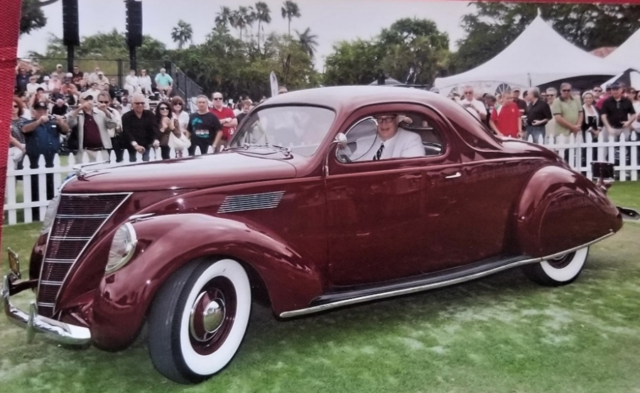
Cecil with his prize-winning Zephyr
“And that was a blow, it was really difficult to endure — I couldn’t write for awhile,” she said. “There were at least two stories that focused on my daughter and her family and I decided I should get those printed. I worked very hard for a year and got it published in April. I realized when I was doing it, when I really got going on it, I wanted to do it for another reason — to celebrate the people in my past — in Weldon and Halifax — that had meant so much to me.”
Another reason was to talk about the UMC Woman’s College in Greensboro, she said. The university had a sequence of names as it evolved. It was known first as the State Normal and Industrial School, and after 1897 as the State Normal and Industrial College until 1919. During the period 1919-1931, it was known as the North Carolina College for Women, and became the Woman’s College of the University of North Carolina from 1932 to 1963.
Alice said she graduated with an economics degree in 1954 and then earned her Masters in Economics from Duke University.
After “South Toward Home” was published, Alice had plans to share it in Halifax, but COVID-19 has changed her plans for now.
Her close friend and former classmate Glenn Dickens said the book will be sold in Halifax at the Bass House.
“And hopefully, if this pandemic gets over she can have a book signing here,” she said.
Dickens said Alice’s mother taught her French and was her favorite teacher. She said Alice is “a mighty fine person.”
“I am very impressed to have her as a friend,” she said. “I read the book and I thought it was wonderful and so well written I couldn’t put it down. I am reading it over because I am sure I missed a lot. It is so informative of things back in that time — it brought back a lot of memories.”
The book’s cover has its own story — it is a picture of the Roanoke River in Weldon, captured by Weldon resident and photographer, Lee D. Copeland.

Mist on the Roanoak River that became the cover of South Toward Home
Photo by Lee D. Copeland
Copeland Ltd Photography, Weldon, NC
Alice had a copy of the picture, without identification, and she wanted to find out the photographer’s name. She found it at the Riverside Mill in Weldon, where Copeland has several photographs for sale, he said.
After searching for a couple of days, she received some help from her daughter Andrea and Nancy Mueller, board member of the Halifax County Arts Council. Andrea found Copeland’s wife, Dee Riddle Copeland, on Facebook.
Dee’s mother, Janie, who also lives in Weldon, is 98 — they all live in Weldon, Alice said.
“She responded to my daughter on Facebook and Lee gave us permission to use it for the cover,” Alice said.
Copeland said the photo was in Weldon at the first falls on the Roanoke River near the boat ramp on the first cold fall morning several seasons ago.
“I had been watching the river for some time, waiting for three things to come together,” he said. “The falls colors to peak, the river to be low enough to flow through the rocks, the air to be cool enough to allow the mist to rise on the river from the warmer water.
“The three elements came together early on a weekend morning where I spent 90 minutes with my Nikon, photographing the area until the sun got high enough to dissolve the mist,” Copeland said. “I have always felt it was one of my best photos of the river and am very pleased that Mrs. Irby, after seeing the picture on a greeting card, was moved enough to track me down and ask permission to use it on her book cover.”
Copeland said, after the book was published, Alice and Andrea, while passing through the area, stopped by the Copeland’s front porch.
“And spent a delightful 45 minutes visiting with my mother-in-law, Janie Riddle, and Dee and I, reminiscing and discussing friends brought together by the Roanoke River,” he said.
Copeland said he has been taking pictures for 50 years, working professionally for about 20 and as a hobby the rest of the time.
“I worked at several newspapers in Eastern North Carolina, including The Daily Herald with Dick Kern as my editor. I covered the Nixon, Ford and Carter White House while in the Army, the bicentennial in Washington, D.C., and was appointed to the Jimmy Carter Presidential Inaugural Committee.”
As a result of the book, Alice has submitted it for two awards from the N.C. Literary and Historical Society Association and the North Carolina Society, she said. The suggestion came by way of a retired professor at NC State, James W. Clark. He is a well-known award-winning North Carolina writer, who went to Littleton High School, and who read Alice’s book, she said.
The two became acquainted.
“I am not sure when I will find out if I won, but I did send them in,” she said.
When asked why folks should read her book, Alice said it is what she calls a comfort book.
“They are stories about people who lived ordinary, but at the same time exceptional lives,” she said. “I think for many people it will connect to their own memories of their growing up. It is also a social history of about seven or eight decades.
“I am 87 years old, I lived through two-thirds of the 20th Century,” she said. “It will remind people of their own lives in those times. I have heard from people I knew when I was growing up and people who I don’t even know, and they identify with someone in the story. It triggers their memories of their own lives in those times.”
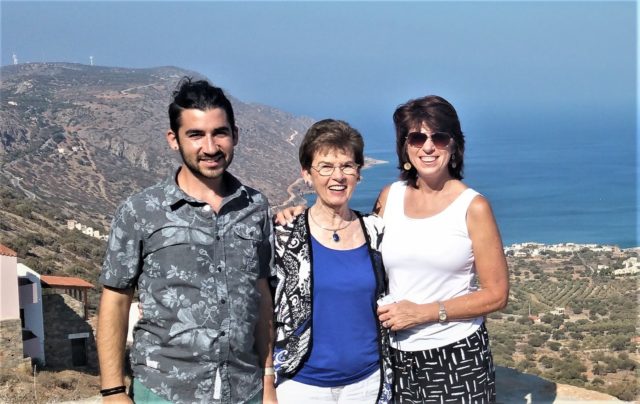
James, Andrea’s son, Alice, and Andrea on the Island of Crete, August 2016
The book is available at Amazon.com and the Outer Banks Publishing Group Bookstore.
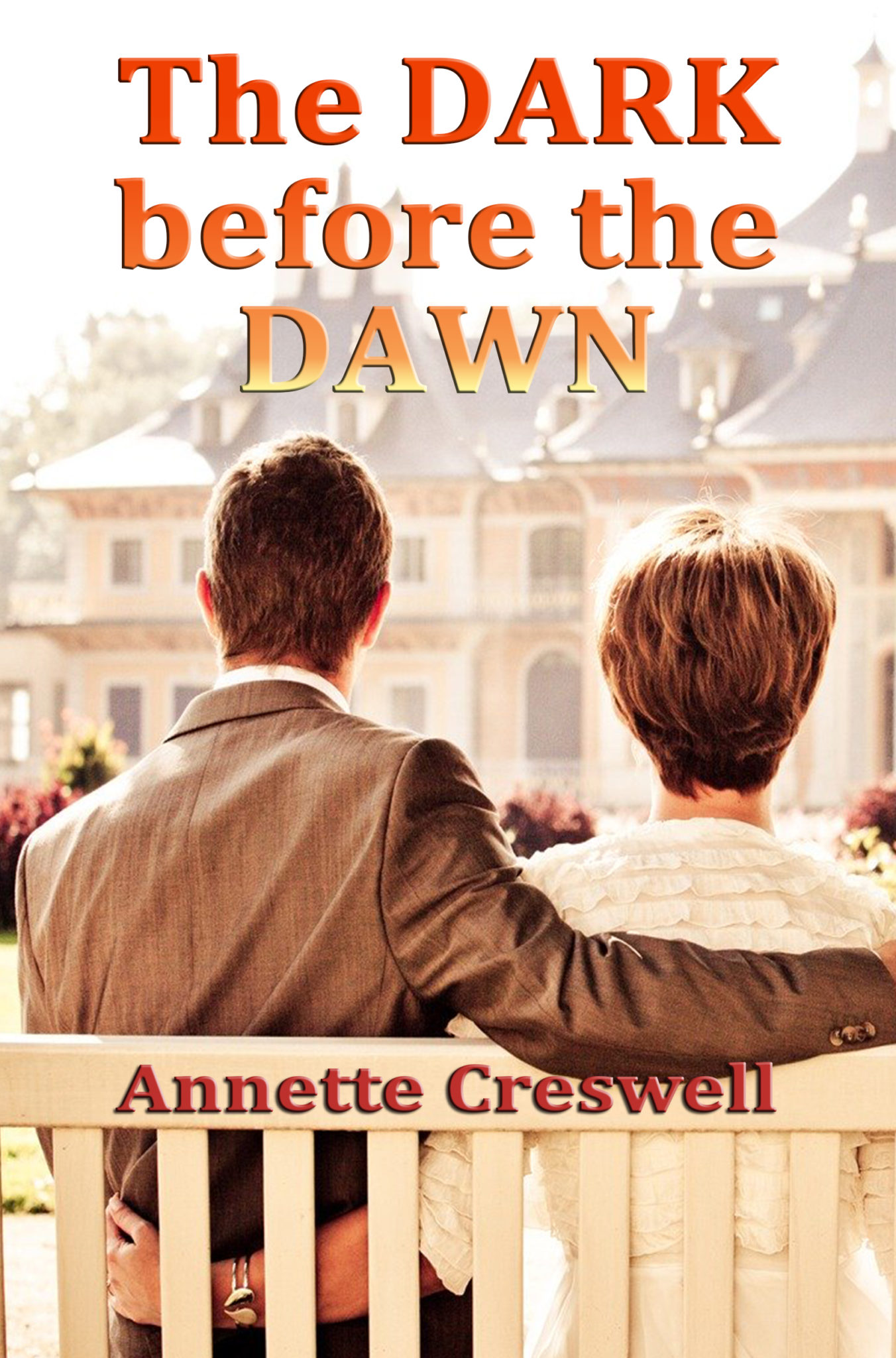
Listen to one of the chapters from Annette Creswell’s The Dark before the Dawn, a love story shortly before the start of World War II. The Dark before the Dawn is available here in our bookstore, on Amazon and in fine bookstores everywhere.
Synopsis
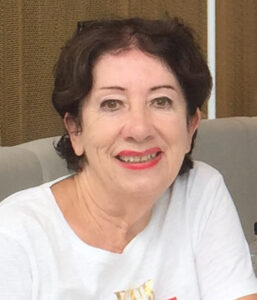
Author Annette Creswell
Just before the start of World War II, Peggy Davis, a London midwife, has a chance encounter with a stranger that changes her life forever.
When Peggy meets Charles, a wealthy lord as she boards a bus in front of Harrods department store, fate casts them together.
When Charles’ wife, Diana, and first child die in childbirth, Peggy, and Charles are thrust into a relationship of happiness, sorrow and unexpected tragedy.
They ultimately marry, have a son and adopt an east end refugee boy from London.
What transpires is a web of family dramas a la Downton Abbey with lesbian relationships, Nazi sympathizers and family secrets revealed as Peggy attempts to navigate through her new life from midwife to lady of the manor.
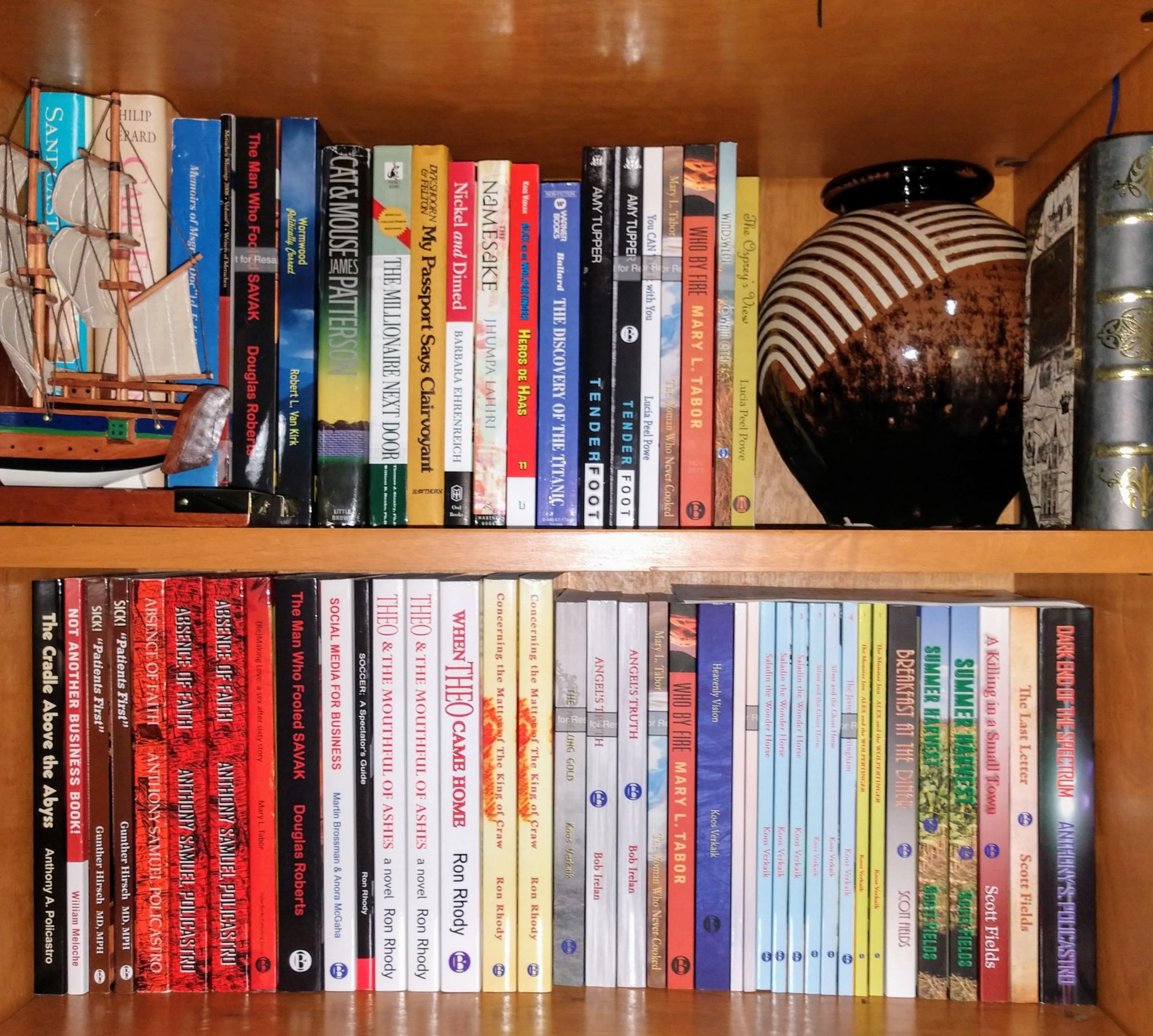
Welcome to our book store
We hope you find a book that will enlighten your life
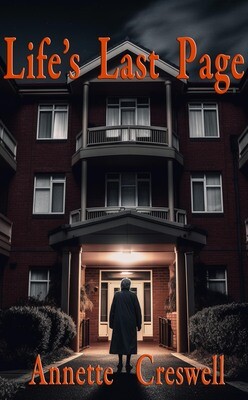

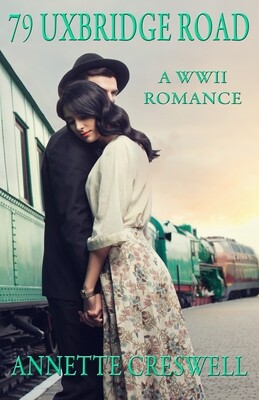



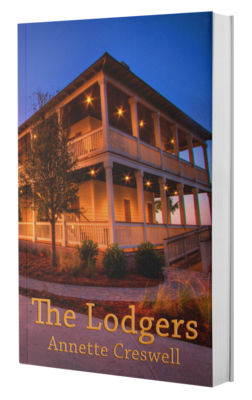

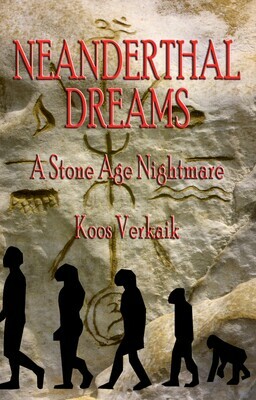

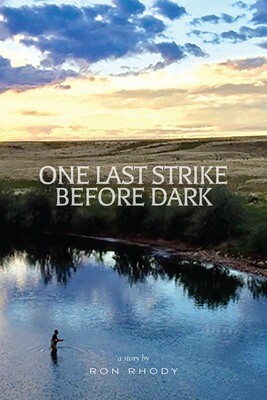



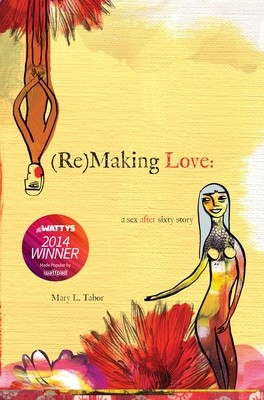

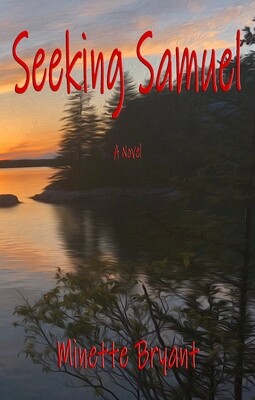

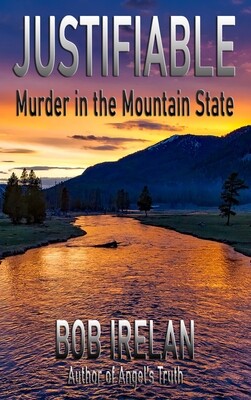

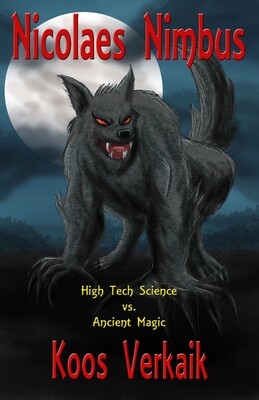

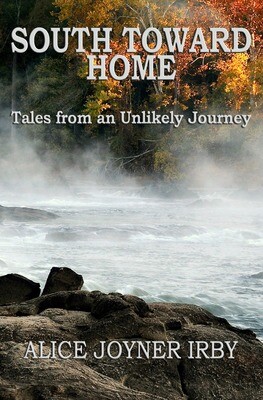



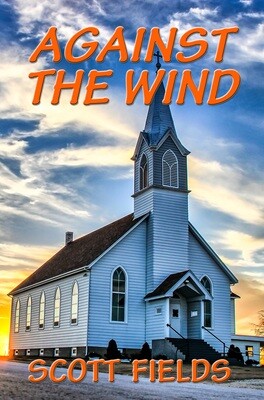

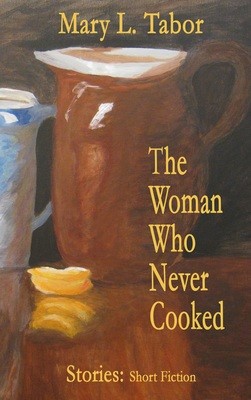

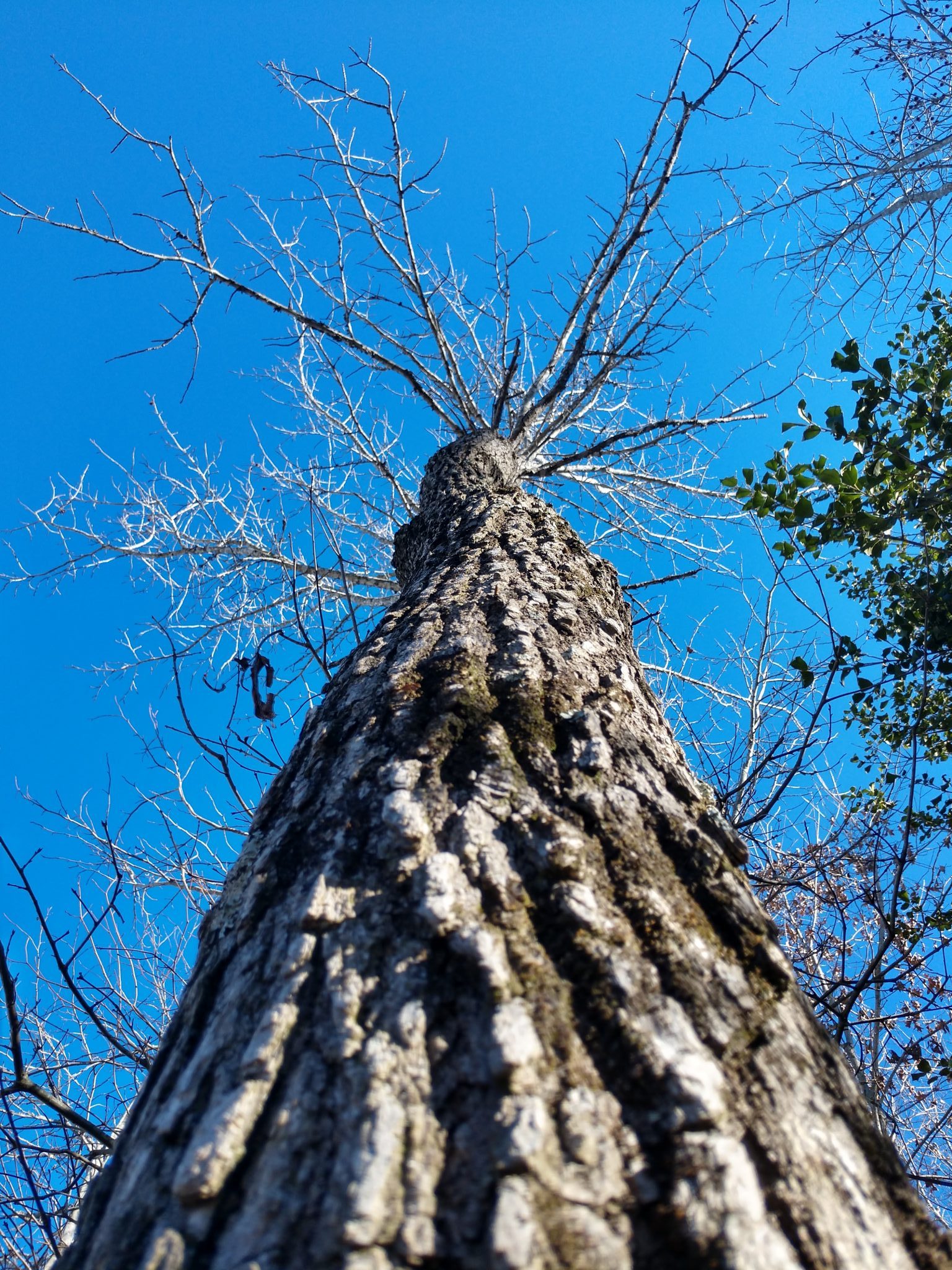

Outer Banks Publishing Group author Mary L. Tabor contributed her writing expertise on Day 3 of a 30-day writing challenge sponsored by Wattpad.
Watch her video on creating the right point of view
Learn more with Mary’s bestselling stories about women’s challenges in today’s hyperspeed society, The Woman Who Never Cooked. The book is now published in its second edition by Outer Banks Publishing Group and available in our bookstore, on Amazon and in bookstores everywhere. The book is
“The American adult woman is featured in this debut collection of stories about love, adultery, marriage, passion, death, and family. There is a subtle humor here, and an innate wisdom about everyday life as women find solace in cooking, work, and chores. Tabor reveals the thoughts of her working professional women who stream into Washington, D.C., from the outer suburbs, the men they date or marry, and the attractive if harried commuters they meet.
“Her collection of short stories The Woman Who Never Cooked, published when she was 60, won the Mid-List Press First Series Award.
“Mary Tabor writes with astonishing grace, endless passion, and subtle humor,” wrote reviewer Melanie Rae Thon.
WHEREVER THE TIDE OF LIFE TAKES YOU AND YOUR LOVED ONES
The Origin of New Year’s Day
From the History Channel
The first New Year’s Day was celebrated on January 1 in the year 45 B.C. for the first time in history as the Julian calendar took effect.
Soon after becoming Roman dictator, Julius Caesar decided that the traditional Roman calendar was in dire need of reform.
Introduced around the seventh century B.C., the Roman calendar attempted to follow the lunar cycle but frequently fell out of phase with the seasons and had to be corrected. In addition, the pontifices, the Roman body charged with overseeing the calendar, often abused its authority by adding days to extend political terms or interfere with elections.
In designing his new calendar, Caesar enlisted the aid of Sosigenes, an Alexandrian astronomer, who advised him to do away with the lunar cycle entirely and follow the solar year, as did the Egyptians.
The year was calculated to be 365 and 1/4 days, and Caesar added 67 days to 45 B.C., making 46 B.C. begin on January 1, rather than in March. He also decreed that every four years a day be added to February, thus theoretically keeping his calendar from falling out of step.
Shortly before his assassination in 44 B.C., he changed the name of the month Quintilis to Julius (July) after himself. Later, the month of Sextilis was renamed Augustus (August) after his successor.
Celebration of New Year’s Day in January fell out of practice during the Middle Ages, and even those who strictly adhered to the Julian calendar did not observe the New Year exactly on January 1. The reason for the latter was that Caesar and Sosigenes failed to calculate the correct value for the solar year as 365.242199 days, not 365.25 days. Thus, an 11-minute-a-year error added seven days by the year 1000, and 10 days by the mid-15th century.
The Roman church became aware of this problem, and in the 1570s Pope Gregory XIII commissioned Jesuit astronomer Christopher Clavius to come up with a new calendar. In 1582, the Gregorian calendar was implemented, omitting 10 days for that year and establishing the new rule that only one of every four centennial years should be a leap year. Since then, people around the world have gathered en masse on January 1 to celebrate the precise arrival of the New Year.


By Anthony S. Policastro, Publisher
While we can now communicate in the fastest, easiest and most convenient ways possible using a myriad of devices anywhere, anytime to anyone in any corner of the connected world, I believe we are losing our ability to communicate.
Because communication is now ubiquitous, convenient, easy and instant, we have taken our writing skills for granted. Take emails. I believe that most of us are so comfortable with communicating with this medium that we use it like we are conversing with a good friend. Facebook and Twitter reinforce this mindset because we know our posts and tweets are reaching friends and relatives.


Jeff Bezos
The result is a quantum disconnect fueled by snippets of information that are most times incomprehensible.
When you a sitting face to face and having a conversation, the context of what you are talking about is always top of mind. But when you converse in the same manner with email the recipient may not read email for hours or days. The context gets lost. Complicate that with several acronyms in the copy and you might as well call a cryptologist.
We tend to write emails as if the recipient is sitting across from us leaving out the content because we believe the recipient will know what we are writing about. We have become lazy writers.
And I’m not alone in my view.
Walter Chen in his blog, IDoneThis.com, wrote about Jeff Bezos, founder of Amazon who values writing over talking to such an extreme that in Amazon senior executive meetings, “before any conversation or discussion begins, everyone sits for 30 minutes in total silence, carefully reading six-page printed memos.”
Writing out full sentences enforces clear thinking, but more than that, it’s a compelling method to drive memo authors to write in a narrative structure that reinforces a distinctly Amazon way of thinking—its obsession with the customer. In every memo that could potentially address any issue in the company, the memo author must answer the question: “What’s in it for the customer, the company, and how does the answer to the question enable innovation on behalf of the customer?”
Like Bezos, Andy Grove of Intel finds value in the process of writing, but he doesn’t consider reading important. Grove considers the process to force
yourself “to be more precise than [you] might be verbally”, creating “an archive of data” that can “help to validate ad hoc inputs” and to reflect with precision on your thought and approach.
Writing, according to Grove, is a “safety-net” for your thought process that you should always be doing to “catch … anything you may have missed.”
So what is the solution? Write more, write casually, but include all the pertinent facts and pretend your reader knows practically nothing about what you are writing about.


Reviewed by Steven Felicelli
According to Ron Rhody’s wife, he is not eligible for authoring a memoir. He hasn’t won an Oscar or an MVP or a Nobel prize. And yet Rhody has a story he wants, needs, to tell. His story. And so that’s how he will tell it to us: as one of Our Own Little Fictions.
Reminiscent of Sarah Polley’s documentary Stories We Tell, Rhody meanders through his memory and down the real roads he’s traveled all over the U.S., from his beloved Frankfort, Kentucky, to California and back (via Florida and Alabama) and then back out to California. Along this circuitous route through his youth, manhood, and ancestry, we encounter all sorts of colorful characters, historical events, family triumphs, and tragedies, which in large part amount to the man whose story we’re being told.
The place closest to Rhody’s heart is clearly Frankfort, Kentucky. It is there his father, a newspaperman, fought for civil rights and to put down roots for his forward-thinking family. Though a wanderlust would uproot the Rhodys and send them all over the U.S., Kentucky kept calling them back to the heart of the heart of their country. In Our Own Little Fictions, Frankfort is origin and refuge, and it serves as the Ithaca of the author’s Odyssey.These chronicles of Rhody contain all the joy and pain of an American life that spans the Cold War to the present.
We meet his parents, grandparents, wife and children, friends and mentors. From animated anecdotes of a hard-nosed football coach doling out life lessons to the memorial for a dear friend and author of “sixteen erudite books,” we witness a life pass in time-lapse frames of laconic, Hemingwayesque prose.
Hemingway and his suicide haunt the narrative beginning to end. On a road trip from California to Kentucky, Rhody and his son make a scheduled detour to Hemingway’s home in Idaho (where he’d put the shotgun in his mouth).
”It seemed wrong that Hemingway had killed himself. Nature should have gotten him. Or chance.”
Later in the narrative and earlier in time, news of Hemingway’s suicide reaches Rhody, and he reflects on the premature tragedy, as well as his own (missed?) calling. These two time periods intermingle, and Rhody leaves Idaho with “an answer to a question I hadn’t known I’d asked.” Authorship was an alternative path he’d bypassed only to embark upon late in life.
Later in the narrative and earlier in time, news of Hemingway’s suicide reaches Rhody, and he reflects on the premature tragedy, as well as his own (missed?) calling. These two time periods intermingle, and Rhody leaves Idaho with “an answer to a question I hadn’t known I’d asked.” Authorship was an alternative path he’d bypassed only to embark upon late in life.
Late in life, indeed. The long road approaches its end and the loss of loved ones is an inevitability. Each story has the same conclusion, alas, and many of the characters we encounter in this Appalachian saga pass on in heartrending deathbed scenes and austere funerals. The depiction of these tragedies is sentimental, even cliched, but anything less/more would not be true to life. It is the commonality of these cliches that arise in endless variations, like updates of Shakespeare.
No, Ron Rhody is no Prince Hamlet, nor was he meant to be, but his story of “becoming,” with its conduplicatio, terse punch-lines, and homespun wisdom, is one that will always be in need of telling and retelling.
The feature photo above from left, Ron Rhody’s sister, Ann, his mother and sister, Mary Lou.
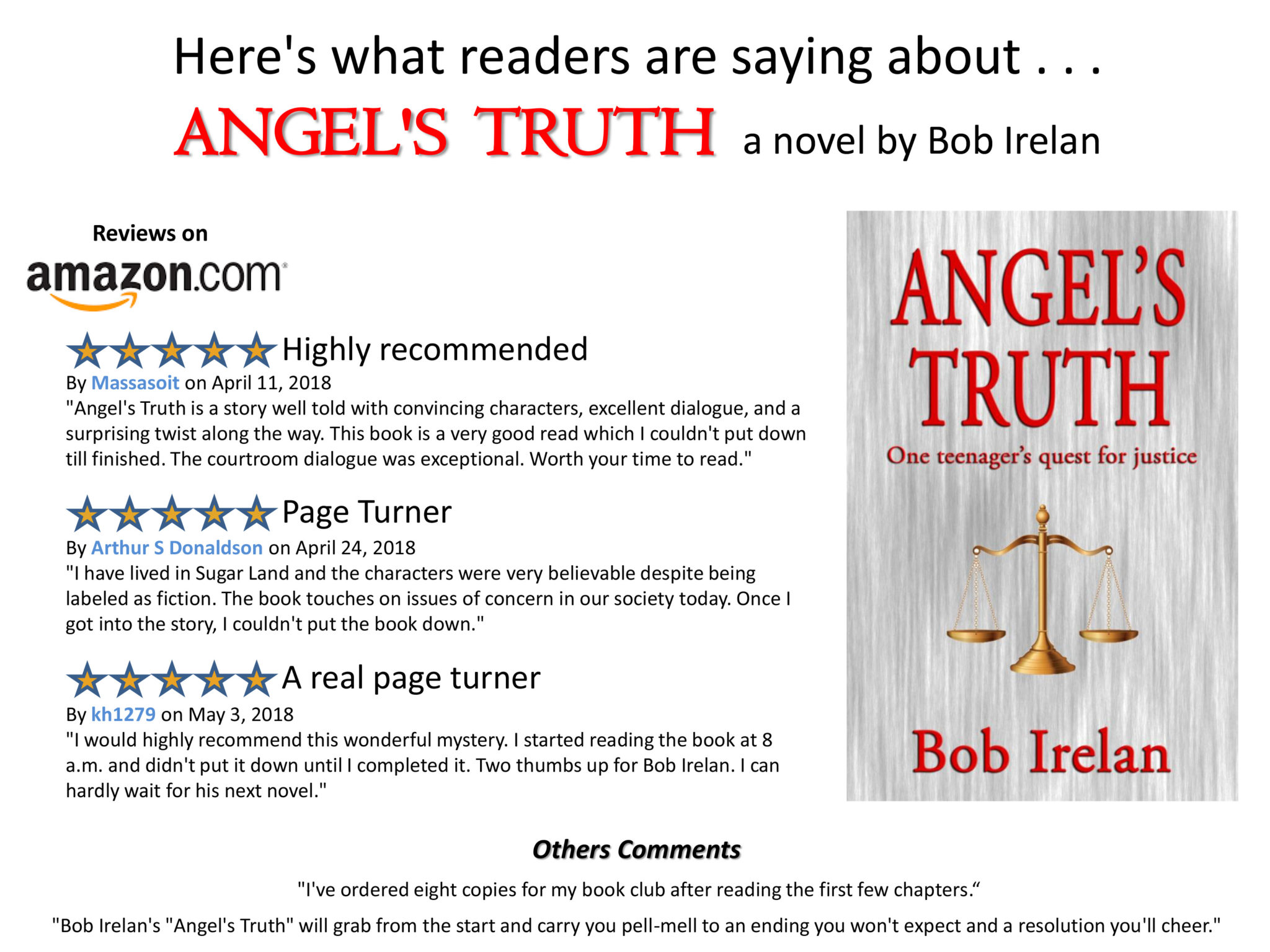

The murder mystery starts when Angel Gonzales is charged with heinous crimes that law enforcement, the media, and most folks in Richmond, Texas, and surrounding communities are certain he committed.
The crimes and trial dwarf anything that has happened in that part of the Lone Star state in anyone’s memory.
When, against all odds, the jury renders “not guilty” verdicts, shock escalates to anger.
In the minds of many, justice has failed, and a brutal criminal is being set free. For Angel and his court-appointed public defender, Marty Booker, being judged “not guilty” isn’t enough.
Together and with help from an unanticipated source, they attempt to prove Angel’s innocence.
In the process, they butt up against prejudice, deceit, and a sheriff and district attorney who put politics, ambition, expedience, and arrogance above responsibility to do their jobs.
It’s a story of horror, hatred, belief, and persistence – a story of a Mexican-American teenager who nearly loses his life on the way to becoming a man.
Outer Banks Publishing Group author Bob Irelan hopes his novel, Angel’s Truth will help people realize that justice is not always applied fairly, especially when it to comes to racial minorities
Angel’s Truth Amazon Reviews pdf
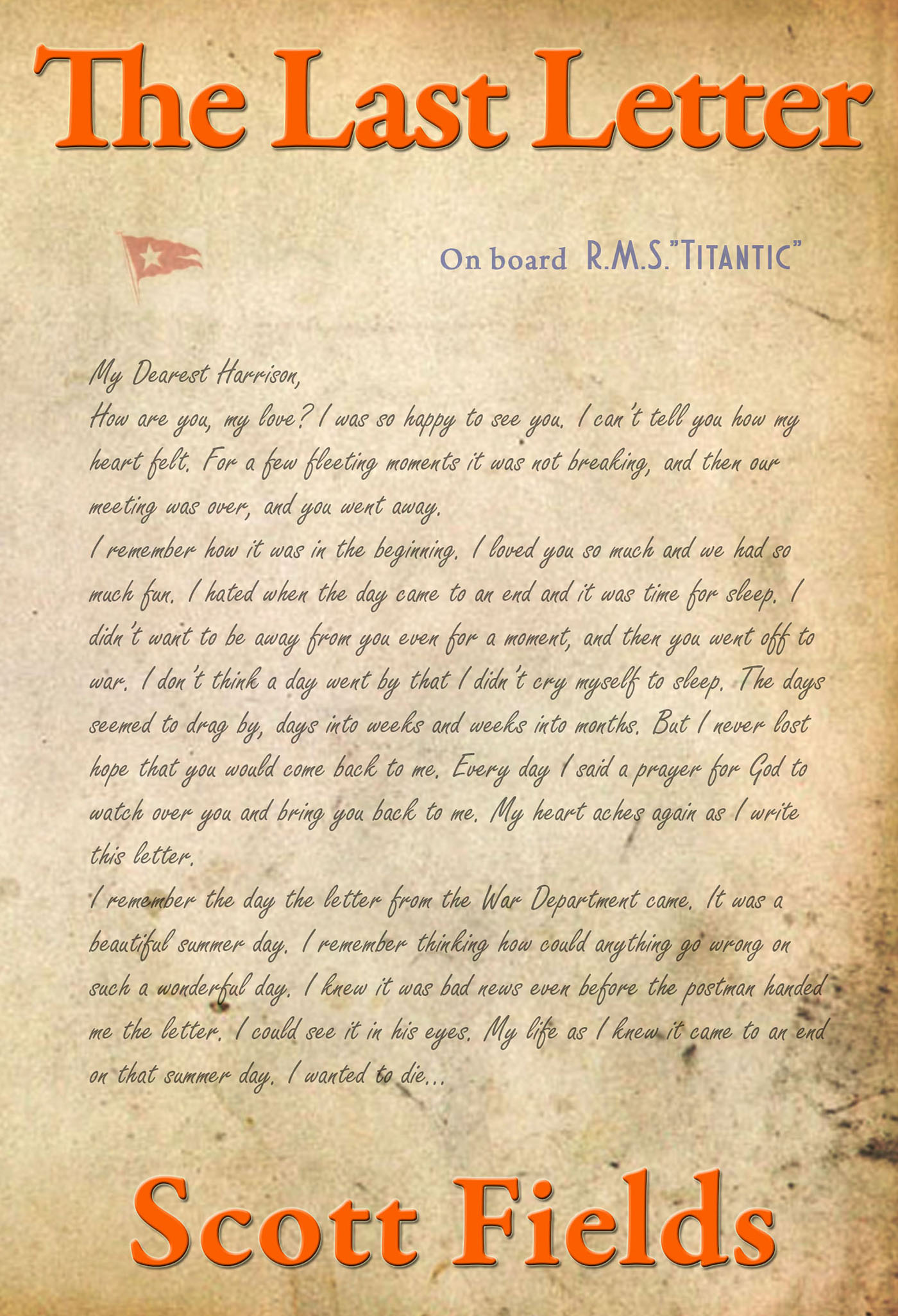

From her watery grave at the bottom of the Atlantic Ocean, the Titanic, even today, guards secrets of the past.
A woman, reportedly died that fateful night when the Titanic sunk, and yet she lived until the year 1995. Why did she feign her death all those years ago, and now after she’s gone, why is she trying to send a message to the living?
This is the untold story about the Titanic that has been kept secret for over one hundred years.
THE LAST LETTER is novel about two people drawn together by the hand of a woman that neither had ever met. Together, they set out to fulfill the unconsummated relationship of two people who met and fell in love over one hundred years before.
5.5″ x 8.5″ (13.97 x 21.59 cm)
Black & White on White paper
232 pages
Outer Banks Publishing Group
ISBN-13: 978-0990679073
ISBN-10: 0990679071
BISAC: Fiction / Romance / Paranormal